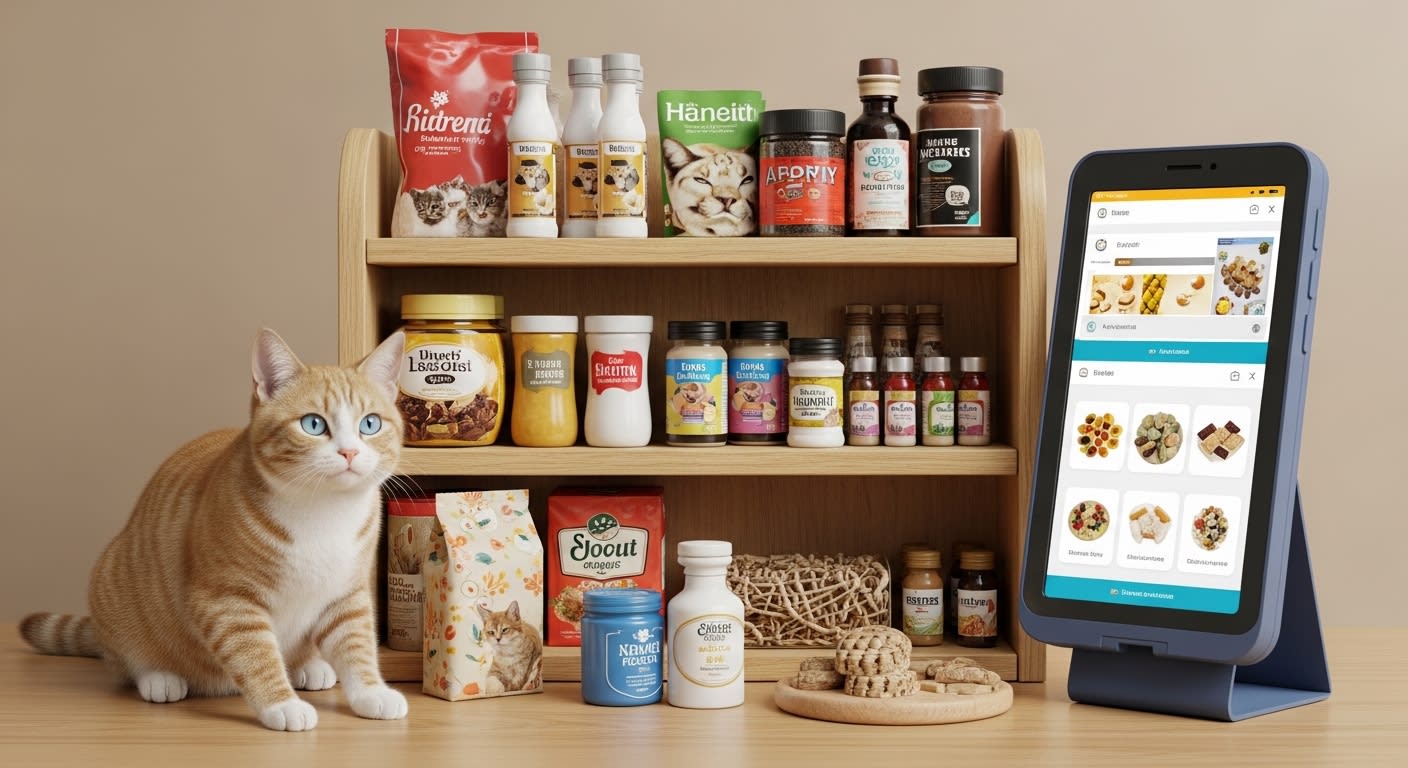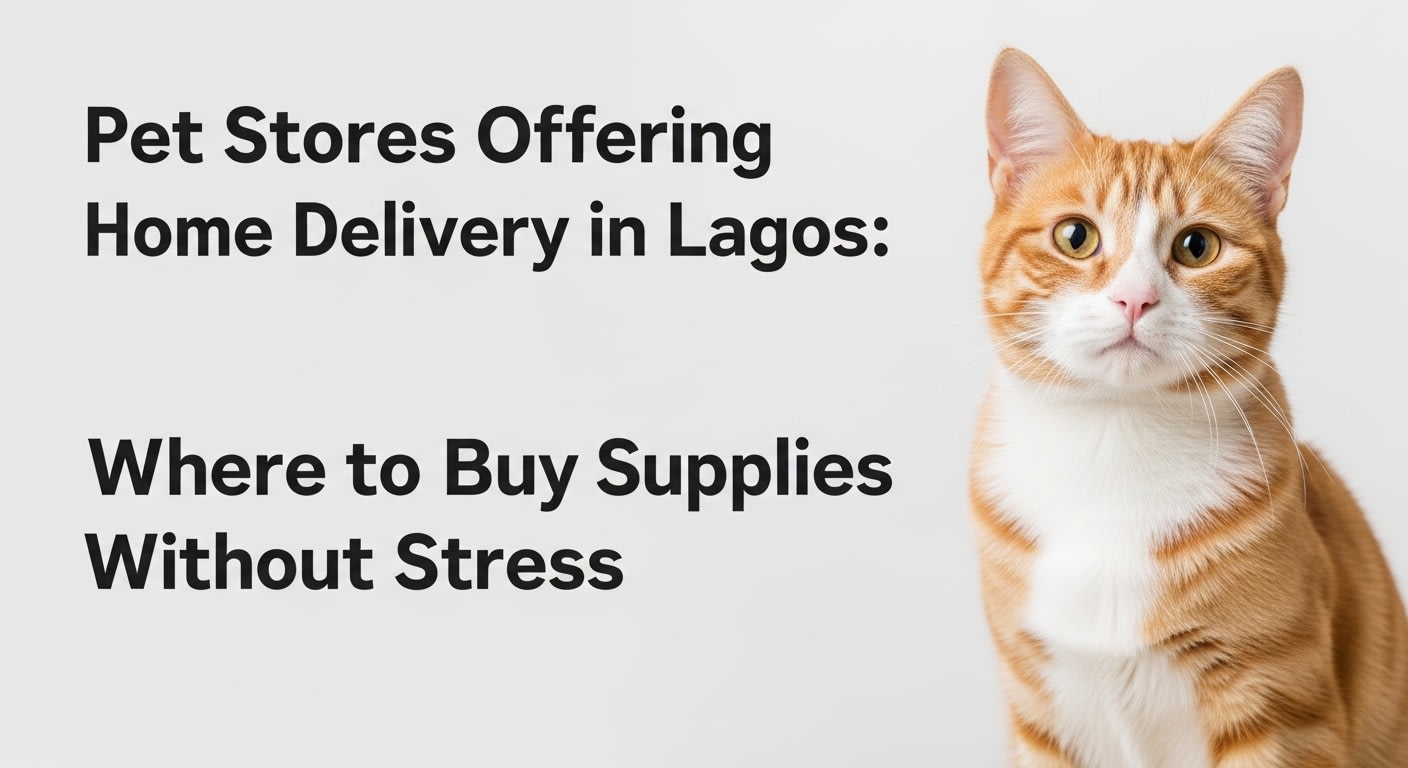Pet Health & Veterinary Care
Top 5 Common Health Issues In Cats And How To Prevent Them
Cats are known for their grace, independence, and mysterious charm. However, even the most agile feline companions are prone to certain health challenges. Understanding the common health issues in cats and how to prevent them is crucial for every pet parent who wants to ensure a long, vibrant life for their furry friend. Mygotovet believes proactive care and early detection are the cornerstones of lifelong feline wellness. By recognizing warning signs early and implementing preventive strategies, you can keep your cat healthy, active, and content.
Understanding Feline Health and Preventive Care
Cats are masters at concealing discomfort. This instinct, rooted in their wild ancestry, makes it difficult for owners to detect illnesses until they have progressed. Therefore, maintaining regular veterinary visits is essential. These check-ups allow veterinarians to detect issues like dental disease, obesity, or kidney dysfunction before they become severe. Preventive care, including annual examinations, routine vaccinations, and parasite control is not a luxury but a necessity.
Additionally, lifestyle factors such as nutrition, environment, and stress management play significant roles in feline health. By keeping these in balance, cat owners can drastically reduce the risk of chronic diseases and improve overall wellbeing.
1. Dental Disease
Dental disease tops the list of health problems in cats, affecting nearly 70–90% of cats over four years old. Gum disease, gingivitis, and tooth resorption are the most common conditions. Left untreated, they can cause severe pain, infection, and even affect vital organs. Bad breath, drooling, and difficulty eating are early warning signs that shouldn’t be ignored.
Preventing dental issues requires consistency. Regular tooth brushing using cat-safe toothpaste is the most effective way to control plaque buildup. Begin slowly, allowing your cat to get accustomed to the process. Within a few weeks, brushing can become a simple part of your daily routine. Additionally, professional cleanings by a veterinarian once or twice a year help prevent advanced dental decay.
Dental treats and water additives can also help maintain oral hygiene. Mygotovet emphasizes dental health as an essential component of preventive care because untreated gum infections can impact organs such as the kidneys and heart.
2. Obesity and Weight Management
Obesity is another major concern among house cats, especially those who are neutered and live indoors. Excessive weight contributes to a cascade of health problems, including diabetes, arthritis, and heart disease. A body fat percentage above 30% classifies a cat as obese, which can drastically reduce lifespan and quality of life.
To prevent obesity, balance is key. Always feed your cat measured portions based on their age, size, and activity level. Avoid free-feeding and excessive treats. Instead, encourage movement through interactive play and puzzle feeders. Even ten minutes of play several times a day can make a difference.
Moreover, regular veterinary check-ups help monitor your cat’s weight and body condition. Mygotovet offers tailored nutritional guidance, helping pet owners select diets that meet their cat’s unique energy requirements while maintaining an ideal weight.
RECOMMENDED:
Prepare Your Pet For A Vet Visit In Nigeria [2025]
Common Pet Health Problems In Nigeria And How To Prevent Them
Find A Vet In Nigeria: Cost, Consult & Online Verification
3. Parasitic Infestations
Parasites may be tiny, but their impact on feline health is enormous. Fleas, ticks, and intestinal worms can lead to irritation, anemia, and infections. Warm, humid climates are particularly favorable to parasite growth, making year-round protection crucial.
Preventing infestations involves consistent and multi-layered action. Use broad-spectrum parasite preventives that target fleas, ticks, and internal worms. Wash your cat’s bedding weekly in hot water and vacuum floors regularly to remove hidden eggs or larvae.
If you ever notice excessive scratching, hair loss, or visible fleas, consult your veterinarian immediately. Mygotovet experts recommend year-round preventive treatments and individualized parasite management plans to keep your cat safe and itch-free.
4. Urinary and Kidney Problems
Urinary tract diseases and kidney disorders are some of the most serious feline health concerns. Chronic kidney disease (CKD) and Feline Lower Urinary Tract Disease (FLUTD) can lead to discomfort, dehydration, and long-term complications. Cats experiencing these conditions may urinate outside the litter box, strain to urinate, or show signs of pain.
Hydration is key to prevention. Since cats naturally have low thirst drive, encouraging water intake is vital. Provide fresh water daily, invest in a cat water fountain, or serve wet food to increase moisture intake. Reducing stress and maintaining a consistent routine also minimize the risk of urinary problems.
Additionally, avoid toxins like antifreeze, lilies, and human medications, all of which can damage feline kidneys. Regular veterinary tests can detect early kidney stress before symptoms become obvious.
5. Hyperthyroidism Awareness
Hyperthyroidism, an overproduction of thyroid hormones is one of the most common hormonal diseases in older cats. Though its exact cause is unknown, environmental factors, diet, and exposure to certain chemicals are linked to increased risk. Symptoms include hyperactivity, rapid weight loss, and increased appetite despite normal eating habits.
Prevention begins with awareness. Feeding balanced diets without excess iodine and avoiding canned foods with pop-top metal lids can reduce risk. Limiting exposure to flame retardants and household chemicals also helps lower potential triggers. Using natural, unscented litter and maintaining a clean, low-stress environment contribute to long-term thyroid health.
While hyperthyroidism cannot always be prevented, early diagnosis leads to better outcomes. Routine blood tests during annual checkups can detect thyroid changes before symptoms escalate.
The Role of Preventive Veterinary Care
Preventive care is the foundation of feline wellness. Annual veterinary visits are more than just vaccinations, they provide a complete picture of your cat’s health. Your veterinarian can perform a comprehensive examination, check for early signs of disease, and recommend tailored preventive measures.
Mygotovet advocates for proactive pet parenting. Our veterinarians help cat owners establish lifelong wellness routines that include weight management, dental care, and parasite prevention. Because every cat is unique, personalized healthcare plans ensure your feline friend receives the best possible attention year-round.
Keeping Your Cat Happy and Healthy
Caring for a cat goes beyond providing food and shelter; it means protecting them from preventable health problems. By staying alert to early signs of disease and embracing preventive measures, you can give your cat the gift of a long, healthy life. Regular veterinary visits, proper nutrition, and active playtime all work together to build resilience and happiness.
Remember, prevention is always easier and more affordable than treatment. Don’t wait until your cat shows signs of distress, schedule an appointment with Mygotovet or Find a Vet among our certified cat vets or simply signup to Talk to a Vet today. Let our team guide you in creating a personalized wellness plan that keeps your cat thriving for years to come.
Your feline friend deserves the best care possible. Start now, stay consistent, and enjoy every moment with your healthy, purring companion.
Frequently Asked Questions on Common Health Issues in Cats
1. What are the most common health issues in cats?
The most common health issues in cats include dental disease, obesity, parasitic infestations, urinary and kidney problems, and hyperthyroidism. These conditions are frequently seen in both indoor and outdoor cats, and most of them can be prevented with good nutrition, regular veterinary visits, and consistent hygiene.2. How can I prevent my cat from getting sick?
To keep your cat healthy, ensure regular vet check-ups, maintain up-to-date vaccinations, feed a balanced diet, and provide clean water daily. In addition, control parasites year-round and keep your cat’s living environment clean and stress-free. Preventive care is always more effective than treatment.3. What are early signs of illness in cats?
Early signs that your cat might be unwell include reduced appetite, weight loss, bad breath, vomiting, diarrhea, excessive sleeping, or changes in behavior. Cats often hide discomfort, so even subtle changes like less grooming or decreased playfulness could indicate an underlying problem.4. How often should I take my cat to the vet?
Cats should visit the veterinarian at least once a year for a comprehensive wellness exam. Senior cats or those with chronic conditions should have check-ups every six months. Regular visits help detect dental problems, obesity, or kidney disease early, when treatment is most effective.5. What is the best way to prevent dental disease in cats?
The best way to prevent dental disease is through daily brushing with cat-safe toothpaste, regular professional cleanings, and offering dental treats or toys. Proper oral care prevents plaque buildup and gum infections that can affect vital organs like the heart and kidneys.6. How can I help my cat maintain a healthy weight?
Feed your cat measured portions of a balanced diet suitable for their age and activity level. Avoid overfeeding and excessive treats. Encourage play and physical activity to keep your cat active. Consult your veterinarian for a personalized weight management plan if your cat is overweight.7. What can I do to prevent fleas and ticks on my cat?
Use year-round flea and tick preventives as recommended by your veterinarian. Keep your cat’s bedding and environment clean, vacuum regularly, and wash fabrics in hot water. Even indoor cats are at risk, so consistent protection is essential to prevent infestations.8. How can I keep my cat’s kidneys healthy?
Encourage hydration by providing fresh water at all times and including wet food in their diet. Avoid giving human medications or toxic substances such as lilies, grapes, and antifreeze. Routine veterinary bloodwork helps detect early kidney changes before symptoms appear.9. Can hyperthyroidism in cats be prevented?
While hyperthyroidism can’t always be prevented, reducing risk factors helps. Feed iodine-balanced diets, minimize exposure to chemicals, and avoid canned foods with pop-top metal lids when possible. Regular check-ups can help detect thyroid problems before they progress.Animal Health & Blogs

11 February 2026
0 likesValentine’s Day gifts for pet lovers in Nigeria aren’t just cute, they’re thoughtful, useful, and often necessary for vibrant pet health. Whether y ...
Read More
09 February 2026
0 likesAcross Nigeria, more pet owners are ditching stressful market runs and overpriced shops. Instead, they now rely on trusted online pet stores to buy ...
Read More
09 February 2026
0 likesIf you are looking for pet stores offering home delivery in Lagos, the simple answer is yes, you can now get trusted pet supplies delivered straigh ...
Read More